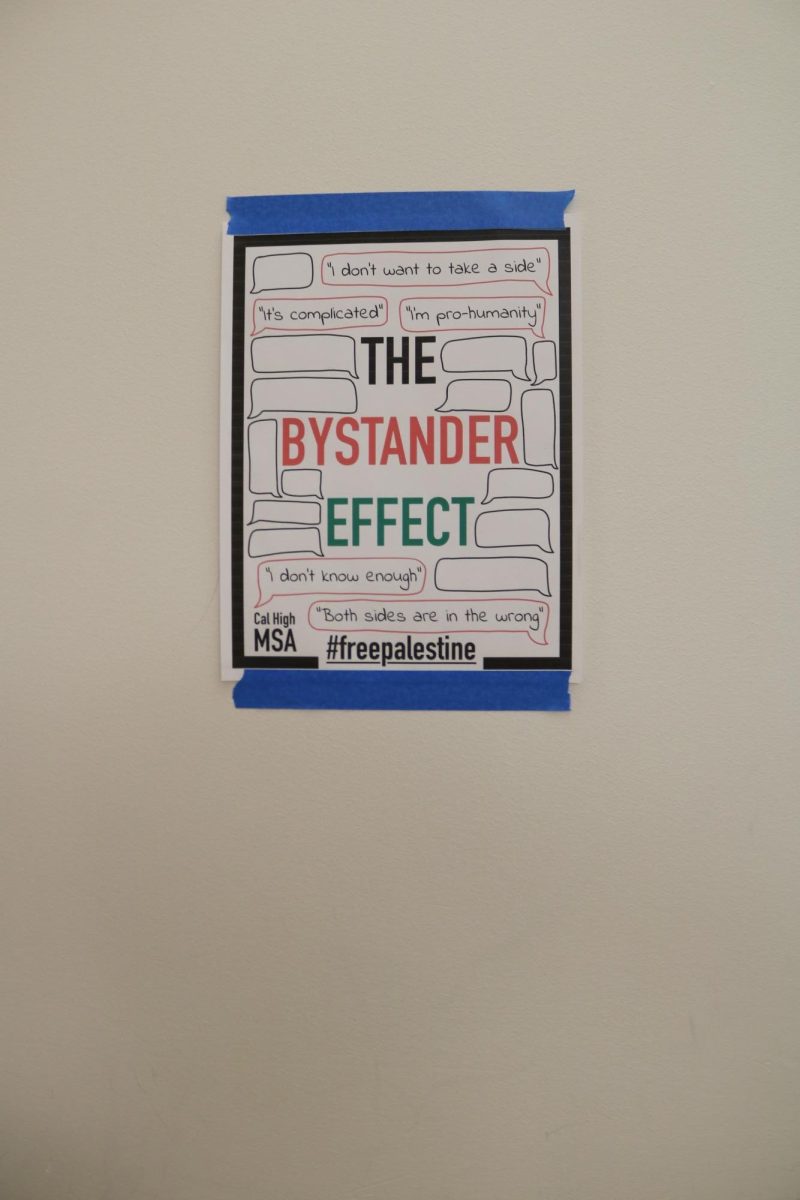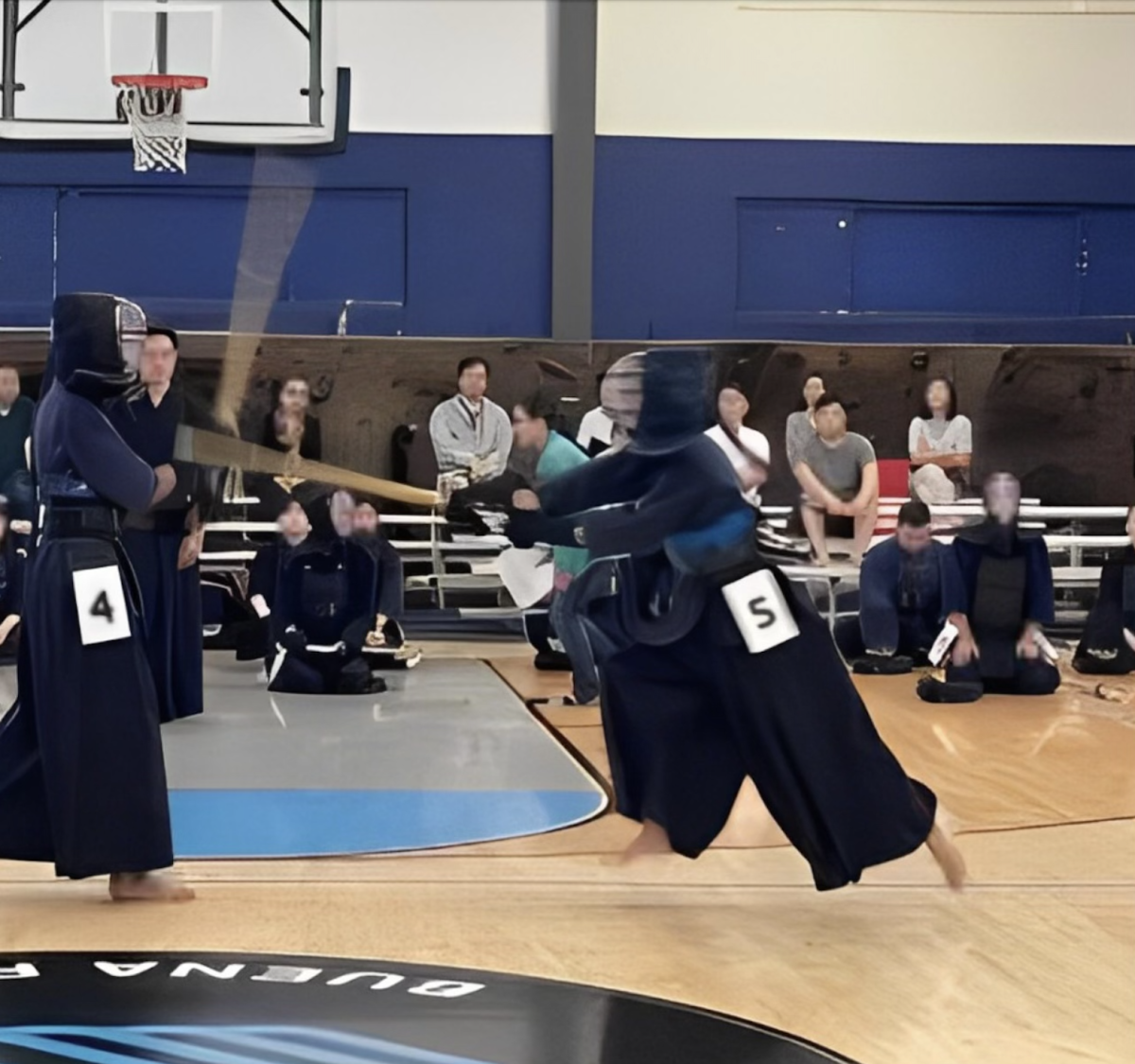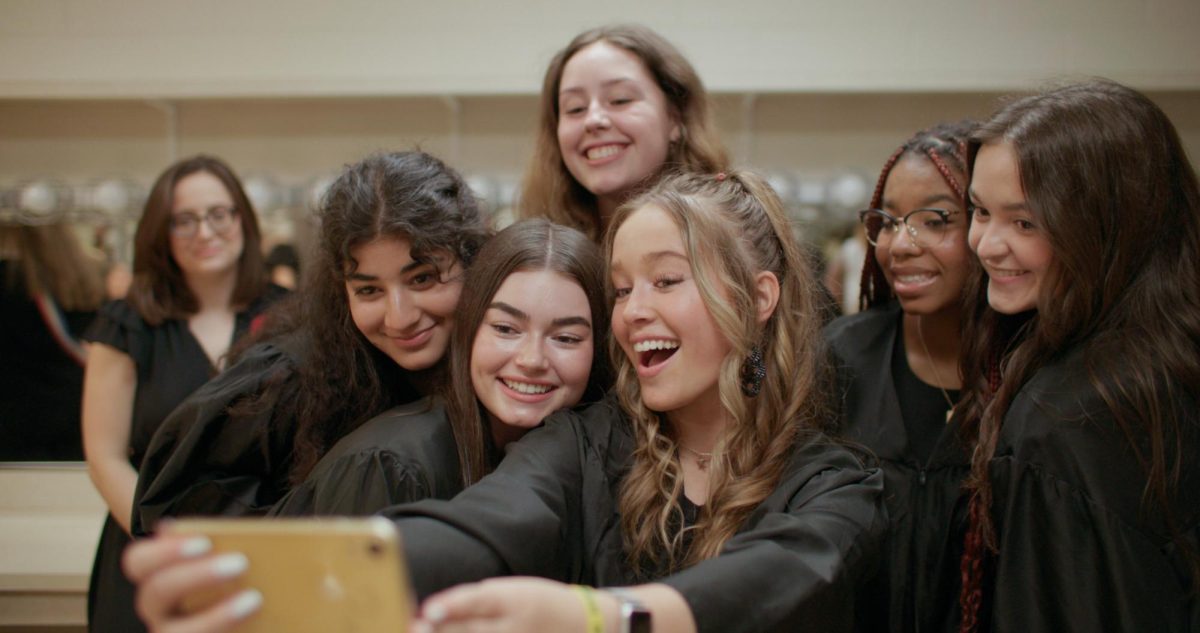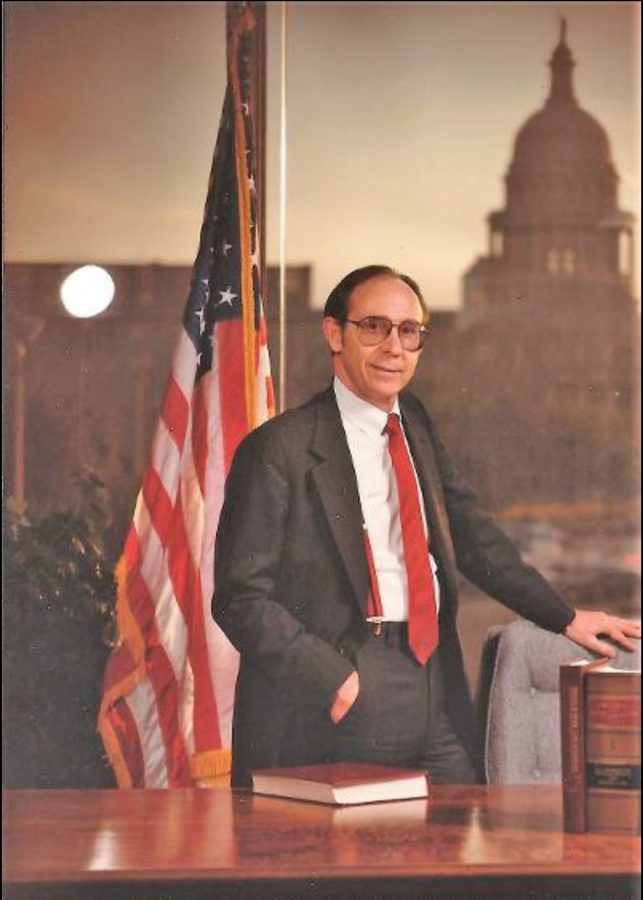Times were changing. New technology invented. War. And Texas education was changing too. Many people were behind the education shift during the 1960s, 1970s and 1980s but one man with a vision helped change it all.
Former Texas Education Agency (TEA) Commissioner Bill Kirby started his journey through education in 1959, changing Texas’ education system and making it the way it is today. He retired in 1991 and now lives on a ranch near Lampasas.
“I was a school janitor in 1959-60 working my way through Jr. college,” Kirby said. “Went from lowest job in education, 1959, to highest job in 1984.”
Kirby became a janitor in 1959 to pay his way through college while his mother Amy Lois Kirby helped him too.
“In those days everyone respected honest work,” Kirby said. “All work was considered honorable and no one looked down upon someone because of the job they had.”
As time went on, Kirby moved a step further in the world, becoming a teacher in 1961 during the Cold War. During this time, had to perform safety drills with the students.
“We had to have numerous safety drills to be ready in case of an atomic attack,” Kirby said. “It also prepared us and students mentally in case that had happened.”
Then, in the early 60s teacher life was out the window for Kirby. Promoted to principal, he became closer with education and his students.
“There were many problems between the superintendent and the school board, and as a result, the principal resigned from the high school so I had to be principal of both schools: middle and high school,” Kirby said.
In 1965 large amounts of federal aid became available to local schools, so Kirby was moved to elementary school principal and federal programs director.
“In looking back over a long career, the most satisfying were the years I worked as a principal, because of the close association I had with teachers and students,” Kirby said.
In the same year, 1965, Kirby moved to work for the Texas education agency. The following year, he was working down the street from the UT tower, when the infamous shooting occurred there.
“We were startled in our office to hear a large amount of sirens,” Kirby said. “We looked out of the 5th floor window towards the UT campus and could see the smoke as he fired his rifle.”
Part of Kirby’s job was bilingual education. Languages, English and Spanish, were to be taught to all students. Previously, the rules were if students spoke Spanish they were often punished, and Kirby helped schools implement bilingual education so that being able to speak two languages was an asset and not a disadvantage.
“The spanish speaking students were separated from the English speaking students and that created a form of segregation, and that is part of why we put bilingual education into schools,” Kirby said. “To help with the situation.”
After working in the education agency, Kirby went to new heights, becoming TEA Commissioner of Education in 1984.
That summer, the Texas legislature passed a massive school reform bill that shook education to its very foundation.
Some of the major components of the bill were: teachers received the largest pay raise in history, students were not allowed to participate in extracurricular activities unless they passed all subjects — also know as ‘no pass no play,– no class in kindergarten through fourth grade could have more than 22 students in it, teachers were given a 45 minute planning period during the school day, massive improvement was made in school equity, school accreditation was changed from compliance with regulations to academic achievement, major student testing procedures were put into place, textbooks were required to cover the essential elements of the new curriculum and all teachers were tested to ensure they had sufficient skills to be teachers.
“With passage of that bill, school teachers and administrators were up in arms,” Kirby said. “I traveled all over the state giving a speech entitled ‘House Bill 72: Is The Sky Really Falling?’ The speech was aimed at explaining all the many new provisions of the law and helping calm the fears of educators. As a result of the successfulness of that speech, numerous legislators asked for video copies of the speech that they could use with upset constituents to help alleviate their fears.”
Kirby is quoted in the famous book Friday Night Lights for what he had to say about the “no pass no play” rule.
“The secretary of education spoke here in Austin on Monday and decried the academic achievement of American children when compared with other industrialized countries,” Kirby is quoted in chapter 15 of Friday Night Lights. “We ranked thirteenth in science. Yes, football and extracurricular activities are important, but shouldn’t we also concern ourselves with science, and math, and reading, and writing? Tonight I’m told there may be forty thousand people in the cotton bowl watching a [high school] football playoff. Today this room has many interested and concerned individuals. The papers have been filled with stories of the controversy. All of these are appropriate and all of these have been done. But I urge you all and all of the people of Texas and America, don’t leave the weightier matters undone. Put some of your time and effort and attention and energy on improving academics and on emphasizing academics.”
After retiring in 1991, Kirby lives currently with his loving wife, Linda Kirby, who is also a retired educator, on a small ranch. Kirby’s work in implementing massive educational reform during the 1980s laid the groundwork for major improvements in education in Texas.
“Education is most important for our country,” Linda Kirby said. “And children are our country’s future.”
This story was originally published on Badger Tracks on October 23, 2020.
































![IN THE SPOTLIGHT: Junior Zalie Mann performs “I Love to Cry at Weddings,” an ensemble piece from the fall musical Sweet Charity, to prospective students during the Fine Arts Showcase on Wednesday, Nov. 8. The showcase is a compilation of performances and demonstrations from each fine arts strand offered at McCallum. This show is put on so that prospective students can see if they are interested in joining an academy or major.
Sweet Charity originally ran the weekends of Sept. 28 and Oct. 8, but made a comeback for the Fine Arts Showcase.
“[Being at the front in the spotlight] is my favorite part of the whole dance, so I was super happy to be on stage performing and smiling at the audience,” Mann said.
Mann performed in both the musical theatre performance and dance excerpt “Ethereal,” a contemporary piece choreographed by the new dance director Terrance Carson, in the showcase. With also being a dance ambassador, Mann got to talk about what MAC dance is, her experience and answer any questions the aspiring arts majors and their parents may have.
Caption by Maya Tackett.](https://bestofsno.com/wp-content/uploads/2024/02/53321803427_47cd17fe70_o-1-1200x800.jpg)
![SPREADING THE JOY: Sophomore Chim Becker poses with sophomores Cozbi Sims and Lou Davidson while manning a table at the Hispanic Heritage treat day during lunch of Sept 28. Becker is a part of the students of color alliance, who put together the activity to raise money for their club.
“It [the stand] was really fun because McCallum has a lot of latino kids,” Becker said. “And I think it was nice that I could share the stuff that I usually just have at home with people who have never tried it before.”
Becker recognizes the importance of celebrating Hispanic heritage at Mac.
“I think its important to celebrate,” Becker said. “Because our culture is awesome and super cool, and everybody should be able to learn about other cultures of the world.”
Caption by JoJo Barnard.](https://bestofsno.com/wp-content/uploads/2024/01/53221601352_4127a81c41_o-1200x675.jpg)






